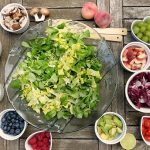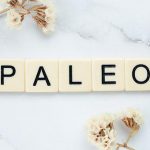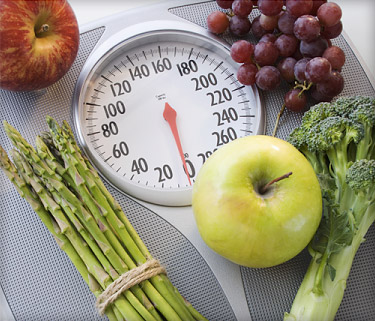A vegetarian diet that is planned out well can help you get the nutrients that you need. Find out what you need to know about a plant-based diet.
Vegetarian diets continue to increase in popularity. There are many reasons why people might choose to follow a vegetarian diet, including reducing their risk of certain health conditions such as heart disease, diabetes, and certain types of cancer.
Vegetarians who consume a lot of processed foods may end up consuming too many calories, sugar, fat, and sodium. Without enough fruits, vegetables, whole grains, and calcium-rich foods in their diet, people may not be getting the nutrients they need.
A vegetarian diet can be healthy for people of all ages if it is planned correctly. This includes children, teenagers, and pregnant or breast-feeding women. BE AWARE OF YOUR NUTRITIONAL NEEDS.
Types of Vegetarian Diets
A vegetarian diet is typically one that does not include meat, poultry, or fish. But vegetarian diets vary in what foods they include and exclude:
- Lacto-vegetarian diets exclude meat, fish, poultry and eggs, as well as foods that contain them. Dairy products, such as milk, cheese, yogurt and butter, are included.
- Ovo-vegetarian diets exclude meat, poultry, seafood and dairy products, but allow eggs.
- Lacto-ovo vegetarian diets exclude meat, fish and poultry, but allow dairy products and eggs.
- Pescatarian diets exclude meat and poultry, dairy, and eggs, but allow fish.
- Vegan diets exclude meat, poultry, fish, eggs and dairy products — and foods that contain these products.
Some people follow a semi-vegetarian diet, which is a plant-based diet that includes meat, poultry, fish, eggs, and dairy occasionally or in small quantities.
Planning a Healthy Vegetarian Diet
Choose a variety of healthy plant-based foods to get the most out of a vegetarian diet, such as whole fruits and vegetables, legumes and nuts, and whole grains.
Choose healthier options like water, unsweetened tea and whole grains. If you are looking to vegetarianism and are unsure of where to start, a registered dietitian can help you create a plan that suits your needs.
If you have a very restrictive diet, it may be difficult to get all the nutrients you need. A vegan diet, for example, eliminates natural food sources of vitamin B-12, as well as milk products, which are good sources of calcium. This can lead to deficiencies in these nutrients.
To be sure that your diet includes everything your body needs, pay special attention to the following nutrients:
Calcium and Vitamin D
Calcium helps build and maintain strong teeth and bones. Milk and dairy foods are highest in calcium. Dark green veggies are a great source of nutrients when eaten in large enough quantities.
Some other options for getting calcium include juices, cereals, soy milk, soy yogurt, and tofu that have been enriched or fortified with calcium.
In addition to its role in calcium absorption, vitamin D also helps to maintain bone density and reduce the risk of fractures. Vitamin D is found in cow’s milk, some brands of soy and rice milk, and some cereals and margarines.
Be sure to check food labels. If you don’t get enough vitamin D from fortified foods and limited sun exposure, you may need a supplement.
Vitamin B-12
Vitamin B-12 is responsible for the production of red blood cells and counteracting anemia. B-12 is a vitamin that is found mostly in animal products, making it hard to get enough of on a vegan diet.
If you don’t eat meat or other animal products, you might not be getting enough vitamin B-12. The vegan diet is rich in a vitamin called folate, which may mask deficiency in vitamin B-12 until severe problems occur.
Vegans should consider taking vitamin supplements, eating cereals that are high in vitamins, and consuming soy products that have been fortified with vitamins.
Protein
Protein helps maintain healthy skin, bones, muscles and organs. Egg and dairy products are a good source of protein and you do not need to eat a lot of them to get the protein you need.
If you eat a variety of plant-based foods throughout the day, you will also get enough protein. Some plant-based sources of protein include soy products and meat substitutes, legumes, lentils, nuts, seeds, and whole grains.
Omega-3 Fatty Acids
Omega-3 fatty acids are important for heart health. If a diet does not include fish or eggs, it is likely lacking in active forms of omega-3 fatty acids. You can get essential fatty acids from canola oil, soy oil, walnuts, ground flaxseed, and soybeans.
If you want to make sure you’re getting enough omega-3 fatty acids, you should look into taking supplements or eating fortified foods.
Iron and Zinc
Iron is a crucial component of red blood cells. Iron can be found in a variety of foods including dried beans and peas, lentils, enriched cereals, whole-grain products, dark leafy green vegetables, and dried fruit.
Plant sources of iron are not as easily absorbed by the body, so vegetarians should consume almost twice as much iron as nonvegetarians.
For better absorption of iron, include foods rich in vitamin C at meals, such as strawberries, citrus fruits, tomatoes, cabbage and broccoli.
Zinc absorption is not as easy from plant sources as it is from animal products. Cheese is a good option if you are looking for a dairy product to eat.
Zinc can be sourced from plants such as whole grains, soy products, legumes, nuts and wheat germ. Zinc is important for many enzymes and for cell division and protein formation.
Iodine
Iodine is found in thyroid hormones, which help to regulate the metabolism, growth and function of vital organs. Vegans who do not supplement their diets with iodine may be at risk for iodine deficiency and the formation of a goiter.
Foods rich in iodine, such as soybeans, cruciferous vegetables and sweet potatoes, may help prevent goiters. A significant amount of iodine can be provided by just 1/4 teaspoon of iodized salt a day.
Reference Intakes (RI)
The RIs are standards for the amount of energy (kilocalories), fat, saturated fat, carbohydrate, sugar, protein and salt that a typical, moderately active adult should eat every day. This means that you shouldn’t eat more than the RIs of these foods in one day.
There is no recommended intake for fiber, although health experts suggest we have 30 grams a day. Don’t forget that we are all different with varying needs for energy and nutrients so this information is for guidance only:
Reference intakes (RI) for men
- Energy – 2500kcal
- Protein – 55g
- Carbohydrates – 300g
- Sugar – 120g
- Fat – 95g
- Saturates – 30g
- Salt – 6g
Reference intakes (RI) for women
- Energy – 2000kcal
- Protein – 50g
- Carbohydrates – 260g
- Sugar – 90g
- Fat – 70g
- Saturates – 20g
- Salt – 6g
Perfect Portions
How does this data apply to you on a personal level? You can use the Eatwell Guide to help you figure out how much food you should be eating.
Carbs like cereal/rice/pasta/potato
- Portion size: Your clenched fist
- Include 1 portion at each main meal and ensure it fills no more than ¼ of your plate
Protein like tofu/beans/pulses
- Portion size: Palm of your hand
- Aim to have a portion at each meal
Cheese
- Portion size: 2 of your thumbs
- Enjoy as a snack or part of a meal
Nuts/seeds
- Portion size: 1 of your cupped hands
- Enjoy as a snack or part of a meal
Butter/spreads/nut butter
- Portion size: The tip of your thumb
- Eat no more than 2 or 3 times a day
Savories like popcorn/crisps
- Portion size: 2 of your cupped hands
- Enjoy as a snack/treat
Bakes like brownies/flapjacks
- Portion size: 2 of your fingers
- Enjoy as an occasional treat
The Eatwell Guide recommends we consume at least five portions of fruit and vegetables daily.
Balanced Nutrition Throughout The Day
Breakfast
A protein-based breakfast is the ideal choice because it is a filling and sustaining way to start the day and does not take any longer to prepare than toast or cereal.
For example, while your bread is toasting, you can scramble an egg for a nutritious toast topper. On days when you have a little more time, you can enjoy our vegetarian kedgeree.
Eggs have a good balance of quality protein and fat, plus the yolks are a useful source of vitamin D, which is important for strong bones and teeth.
Protein not only helps to regulate how quickly the stomach empties, but also helps to control how full you feel after eating. This way, you are less likely to crave snacks or overeat later in the day.
If you would rather have your breakfast in a bowl, you can put porridge or cereal in it with a bunch of nuts and seeds, and then add a large scoop of natural yogurt.
There are a lot of misconceptions about vegetarianism, one of which is that vegetarians are at risk of being iron deficient. However, there are plenty of plant-based foods that are rich in iron, such as fortified breakfast cereals, muesli, whole wheat bread, and pumpkin and sunflower seeds.
Choose any of these foods to eat with a small glass of fruit juice. This combination will help your body absorb more iron. There are many alternative options for those who do not consume dairy products such as milk or yogurt. These alternative options should be fortified with vitamins and minerals including vitamin B12, vitamin D, and calcium.
If you don’t want your blood sugar to fluctuate throughout the day, you should make sure to eat breakfast. Skipping breakfast will cause your blood sugar to drop later in the day, which could lead to you making unhealthy food choices.
It’s important to eat breakfast every day to get the nutrients your body needs to function and to maintain a healthy weight.
Mid-Morning Snack
Choose snacks that will help you stay energized and also give you important nutrients.
Replacing your morning biscuits with toast topped with banana slices, baking a batch of fruit-packed muffins, or blending up a fruit smoothie are all healthier options.
Lunch
Over lunch, strive to have a mixture of protein from sources like beans, peas, nuts, grains or dairy or non-dairy products, along with starchy carbs. Carb-rich foods help to prevent the classic mid-afternoon slump.
You should choose carbs that will not cause a sudden spike in your blood sugar levels. These include high-fiber wholegrains that will help you control your afternoon hunger.
Don’t Forget Good Fats
Fats are an important part of our diet, but it’s important to focus on the right type of fat and not eat too much of it. Fat not only provides energy, but also aids in the absorption of fat-soluble vitamins, such as vitamins A, D, E, and K.
A vegetarian diet is typically lower in saturated fat than a diet that includes meat, but there are some plant-based foods – like coconut and palm oils – that are high in saturated fat.
Good fats for your heart can be found in plant foods like avocado, olive, and cold-pressed rapeseed oils. Nuts and seeds supply the heart-friendly polyunsaturated fats, including the omega-3 variety.
We should include unsaturated fats in our diet by eating a tablespoon of ground flaxseed, two tablespoons of oil, or the equivalent of unsalted nuts every day.
Mid-Afternoon Snack
A lot of people crave savory, salty foods rather than sugar in the afternoon. If you can relate, ditch the potato chips and go for a spiced seed mix, savory popcorn, or lower fat cream cheese on crackers instead. Alternatively, you could also have a crunchy, colorful salad.
Dinner
Don’t curfew carbs. Apples are a great snack because they are low in fat, high in fiber, and can help you relax in the evening. They are also filling, so they will help you make it to breakfast.
You can make a healthy meal by combining foods that are high in healthy essential fats, such as nuts and seeds, with some protein from tofu, eggs, or dairy.
During the night, your body will use protein and healthy fats for regeneration and repair, which helps maintain healthy skin and hair.
Conclusion
Someone who follows a vegetarian diet typically avoids eating meat, fish, and chicken. Grains, pulses, nuts, seeds, vegetables, and fruit make up the bulk of a vegetarian’s diet, with some also choosing to include dairy products and eggs.
A plant-based diet is suggested to be healthier and have fewer reported cases of obesity, heart disease and type 2 diabetes.
A vegetarian diet generally contains less saturated fat and more folate, fiber and antioxidants than a meat-based diet. Additionally, vegetarians are more likely to consume the recommended daily intake of fruit and vegetables.









